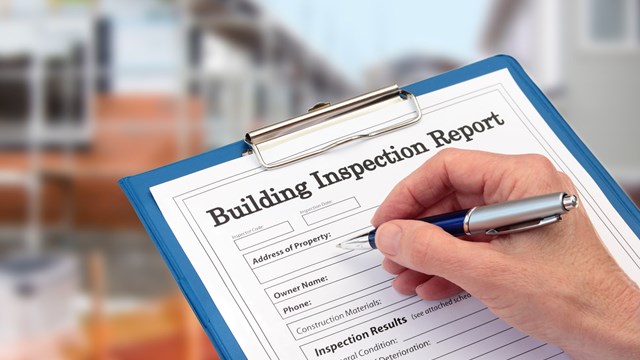In a co-op or condo community, the responsibility of the homeowners association goes beyond setting house rules. The association also has a fiduciary responsibility to collect maintenance fees from its residents, create a budget to account for where that money will be spent, and raise enough capital to cover long-term special projects and repairs. The budget includes operating expenses, repairs and upkeep of the building and other structures, landscaping, lighting, and special projects, such as new playground equipment.
You Need Professional Help
To sustain themselves and remain solvent, associations must first form a team of financial experts they can depend upon to provide solid financial guidance for an operating budget of possibly hundreds of thousands of dollars. These experts will also create a sound financial plan that is analyzed regularly to prevent shortfalls and unpopular assessments.
"You can't be a master of all trades," advises Karen Sackstein, a CPA in Fair Lawn. "It's really important to put together a team with a specialty to advise your association. The association can make mistakes if they try to do it alone."
Budgeting Basics
According to Jules Frankel, CPA, MBA of Wilkin & Guttenplan in East Brunswick, the budget how-to's are simple. "Associations generally follow the principles of fund accounting. The best way to think about fund accounting is to think about the 'envelope system' your parents or grandparents used. One envelope was for rent, one for food, and one for utilities. Instead, associations' 'envelopes' are operating, replacement and deferred maintenance funds."
Each of the major funds then encompasses certain expenditures. For example, the operating fund is designated for such items as snow removal, management, and insurance. "The deferred maintenance fund is money the association may not spend every year, but is for repairs," says David Ferullo, a partner at The Curchin Group in Red Bank. "For example, in three years the association wants to paint the building, but it costs about $30,000. The deferred maintenance budget is $10,000 each year in the fund."
The replacement fund is monies set aside for the major repair and replacement of common elements. "Condominium associations have replacement funds, but co-op boards tend not to include a replacement fund in their budget," says Ferullo. "Co-ops have a stronger ability to borrow money from lending sources and repay them."
The Right Reserves
It's important for associations to have an adequate financial reserve to cover long-term replacements. A reserve study will provide an estimate or projected budget for long-term replacements of such items as roofing, water heaters, furnaces, siding, carpeting and more.
According to the Community Associations Institute (CAI), a national non-profit organization that assists community associations, only a qualified professional should complete a reserve study. The CAI publishes a directory of credentialed professionals that can help to locate a certified reserve specialist, or the local CAI chapter can refer an association to a qualified professional in their area.
To complete an accurate reserve study, associations should have on file the purchase, installation and contract dates, invoices, warranties and service agreements of the items to be replaced. Strict adherence to the study's recommendations will prevent shortage of funds in the long run.
Budgets may also include a special purpose fund, which can be designated for a new playground, basketball court, etc.
"Unfortunately, we don't have a crystal ball when we do a budget," says Sackstein. "Things happen after the budgets are completed, and even though you want a financial cushion, some events are beyond our control. For example, often blizzards force associations to exceed the snow removal budget and a special assessment has to be made."
Special assessments are made when an unexpected expense occurs and residents are asked to pay a one-time fee to cover the lack of funds. "The bottom line is that if we can't collect the extra funds through a special assessment," says Ferullo, "we'll curtail other work that's being done, or when we budget at the end of the year, we'll now have a significant increase in the monthly fees in order to cover the deficit. It's 'pay me now or pay me later.'"
However, if the budget has adequate reserves, the board of directors won't have to rely on the members to raise money. "One of the most common mistakes I see is not having the reserve study updated regularly—that's when large financial assessments have to be levied," says Frankel.
Choosing the Right Piggy-Bank
The association's capital is safely tucked away in a low-interest money market or other interest-bearing account. However, investment strategies for associations are limited, says Sackstein. "There aren't many options for associations, because they shouldn't be investing in anything that could jeopardize the principle."
Sackstein explains that associations obviously want the most bang for their buck, but she cautions the choice of investments—especially deferred maintenance money that has a stronger opportunity to gain more interest. Tying the cash up in a higher-interest or long-term account may not be in their best interest.
"You have to make sure you divide the money and have staggered maturing of accounts," says Sackstein. "Otherwise if you need the money quickly, you might not be able to access it and you might be affected by a shifting interest rate. However, if you have accounts mature in two, three, four, and then five years, you don't feel the risk as much."
Raising extra resources is usually limited to special assessments and interest generated from investments, but Frankel admits that associations can generate outside revenue, by being creative and using such amenities as their rooftops. "If you're a tall building and Verizon needs a place for a cell towers, the building can rent the roof for a cell phone or cable provider," says Frankel.
"Make sure your association is also getting township reimbursements," says Frankel. "The township [may] reimburse associations for expenses—such as snow removal—that the unit owners pay. It's revenue for the association."
Even though associations ought to rely on their expert's advice, it's the board's responsibility to confirm they are receiving correct information. "Often the board doesn't check what they are being told and then they find out later that there are problems," says Ferullo. "The board needs to ask questions and challenge what the advisors say. It's a good idea to have a board member who has a financial background."
Another mistake that hinders associations is allowing one board member the sole responsibility of handling the funds. "Make sure your proper internal controls are in place," says Sackstein. "Make sure there are two board signatures on a withdrawal, not one, so the members can't act independently or bully other members to see their viewpoint."
Most boards require an annual independent audit and most associations distribute copies of the budget and financial statement to the unit owners. Other associations make copies available, but unit owners must request them.
Potential residents may want to review the association budget before purchasing to examine the HOA's financial condition. Solvent associations can translate into satisfied residents. However, it is not a good sign if there is a lack of cash reserves and homeowners are frequently tapped for cash.
Lisa Iannucci is a freelance writer living in Poughkeepsie, New York.







Comments
Leave a Comment